Have you ever heard the saying, “If you cut your nails at night, you won’t be able to see your parents on their deathbed”? Why is it believed that cutting nails at night will prevent you from being with your parents when they pass away? Of course, there is no logical causal relationship. Japan has countless superstitions like this one that are believed to bring bad luck and have been passed down through generations. Such superstitions that are thought to bring misfortune tend to stick in people’s memories, which is why they have been handed down as folk tales. In this article, we will introduce some of these Japanese superstitions that are believed to bring bad luck.
Hiding Your Thumb When You See a Hearse

The superstition of hiding your thumb when you see a hearse is a unique cultural belief in Japan. This superstition is especially well-known among children, and it is said that by hiding your thumb when a hearse passes by, you can protect yourself from misfortune or death.
The reasoning behind this practice is related to the Japanese word for thumb, “oyayubi,” which includes the word “oya,” meaning “parent.” By hiding your thumb, it is believed that you are protecting your parents from death. In other words, seeing a hearse signifies direct contact with death, so hiding your thumb is a way to show concern for your parents at that moment.
While there is no scientific basis for this superstition, it is passed down as a cultural practice and a form of belief. Many believe that children who follow this practice can alleviate anxiety and fear, thereby achieving peace of mind. Even in modern times, traditional superstitions like this continue to exist in various forms within Japanese society and culture, serving as an interesting example of cultural diversity and the persistence of tradition.
Sleeping with Your Head Facing North is Unlucky

The belief that sleeping with your head facing north is unlucky is one of Japan’s traditional superstitions. This superstition is primarily rooted in Japanese funeral customs. In Japan, it has long been common to lay the deceased to rest with their head facing north, which is why this direction is associated with death. This practice, known as “Kitamakura” (north-facing pillow), is avoided as it is linked to death.
This superstition is also influenced by feng shui principles, which suggest that directions significantly impact a person’s fortune. The north is often regarded as a cold, stagnant direction, and sleeping with your head facing north is believed to disrupt the flow of energy, negatively affecting health and luck.
However, these superstitions are not based on scientific evidence, and many people today see them as mere folklore. Nonetheless, as part of cultural and traditional practices, some people still avoid sleeping with their head facing north. Such superstitions provide an interesting insight into the cultural and historical aspects of the region, contributing to a broader understanding of Japanese customs and beliefs.
When a Crow Caws, Someone Will Die

The superstition that a crow’s cawing signals someone’s death is a belief found in Japan and other cultures. Crows, with their distinctive black feathers, unique caw, and habit of feeding on carrion, are often associated with death and ominous signs. In Japan, there is a tendency to view a crow’s cawing as a harbinger of bad events or death. This superstition likely arose because crows are frequently seen near places associated with death, such as cemeteries, funeral sites, battlefields, and execution grounds.
Additionally, crows are known to be highly intelligent birds that closely observe human activities. This intelligence sometimes leads people to believe that crows are sensing something unusual and cawing in response. However, there is no scientific evidence to support the idea that a crow’s cawing is directly linked to human death.
This superstition reinforces the negative image of crows, but it is essential to understand that crows are intelligent creatures that have adapted to urban environments and coexist with humans in various ways.
Whistling at Night Brings Bad Luck

The superstition that whistling at night brings bad luck is an ancient one in Japan, with various interpretations depending on the region or household. Commonly, it is believed that whistling at night can attract evil spirits or demons, summon thieves or kidnappers who used whistling as a signal, or even draw snakes. All of these reasons contribute to the idea that whistling at night can invite misfortune. It is also said that whistling at night can call the wind, which might lead to disasters.
This superstition is thought to be connected to an ancient belief in the mystical power of whistling, which was considered to invite gods or spirits. Since nighttime is believed to be a time when evil forces are more active, it was considered inappropriate to engage in the sacred act of whistling carelessly. Additionally, whistling at night was seen as disturbing the peace and quiet, making it a nuisance to neighbors and a matter of discipline for children.
Thus, the belief that whistling at night is unlucky combines elements of supernatural faith, social signaling, respect for nature, and social etiquette. Even though there is no scientific basis for this superstition, it reflects the history and values of the communities where it was passed down.
A Black Cat Crossing Your Path Brings Misfortune
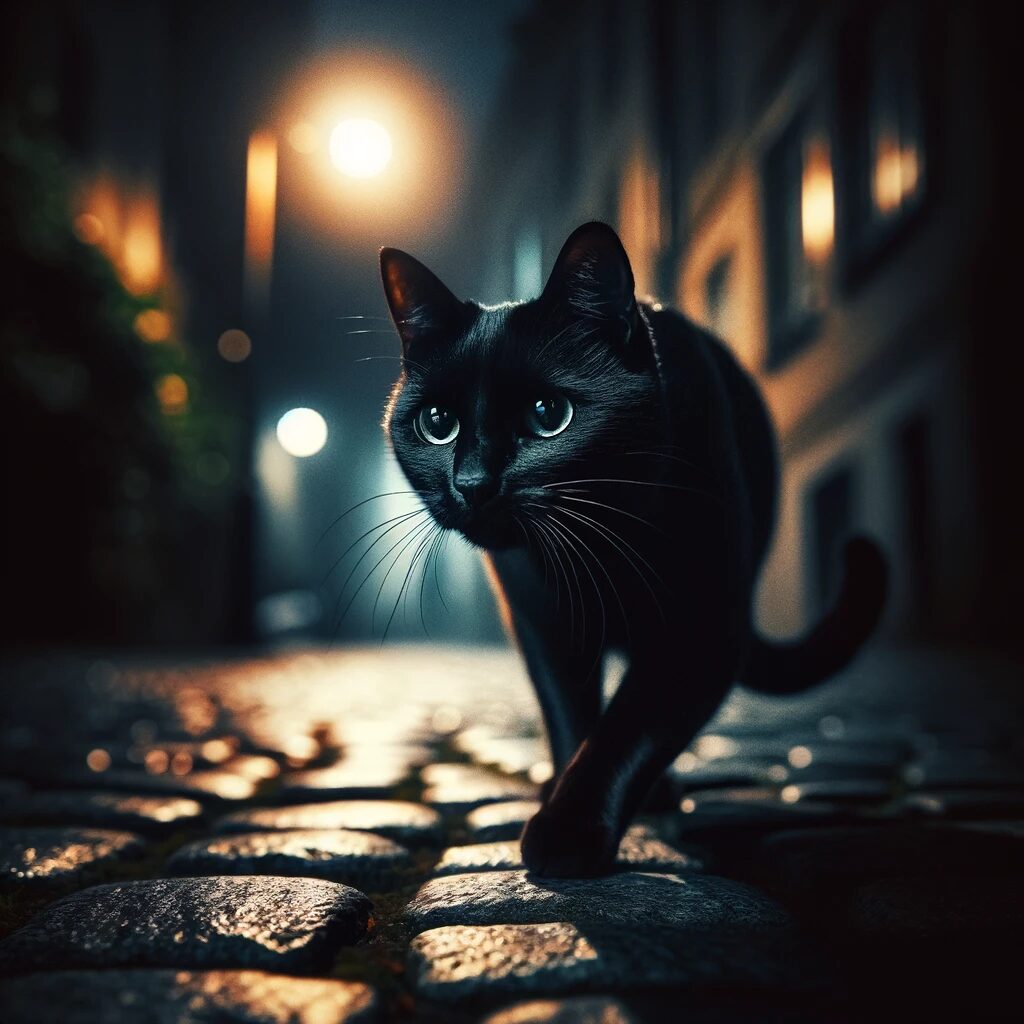
The superstition that a black cat crossing your path brings misfortune dates back to the “witch hunts” in medieval Europe. During these times, black cats were rumored to be the familiars of witches. As a result, black cats were persecuted and killed, as they were seen as animals favored by the devil and symbols of witches. People even judged potential witches by whether they kept a black cat. This historical context gave rise to folktales, where the appearance of a black cat was seen as an ominous sign. One such tale suggested that witches could transform into black cats. In the story, a child threw a stone at a black cat’s leg in the dark, leaving a bruise, and the next day, a woman suspected of being a witch was seen limping with a bruised leg.
The appearance of a black cat’s glowing eyes, dark fur, and prominent teeth at night likely contributed to its association with devils and witches. The combination of its appearance and these sinister images likely led to the spread of folktales and, eventually, this superstition.
However, the belief that a black cat crossing your path is unlucky is just a superstition. In contrast, in Japan and New Zealand, black cats are considered to bring good luck. Whether a black cat crossing your path is seen as unlucky or fortunate depends on the region and culture, but seeing a cute black cat might just brighten your day.
Cutting Your Nails at Night Means You Won’t Be There When Your Parents Die
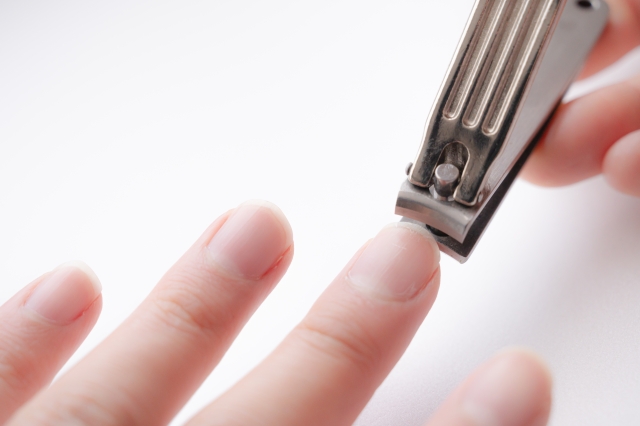
You may have heard the saying, “If you cut your nails at night, you won’t be able to see your parents on their deathbed.” This belief is said to have its roots in the Sengoku period’s practice of “night guarding” (yoritsume). Night guarding was a crucial duty where soldiers were not allowed to leave their posts, even if something happened to their parents. The taboo of cutting nails at night likely arose from a play on words between “yozume” (cutting nails at night) and “yoritsume” (night guarding).
Additionally, the word “yozume” can be written as “世詰め,” which means “shortening one’s life.” This interpretation suggests that cutting your nails at night could shorten your lifespan, leading to the belief that you might pass away before your parents and thus not be present when they die.
But why was cutting nails at night considered “unlucky”? One theory suggests that it served as a warning against injury. In ancient times, there were no nail clippers, so people used small knives or scissors to cut their nails. Moreover, there was no electric lighting as we have today, so cutting nails at night had to be done by the dim light of a candle, increasing the risk of injury. It is said that this belief spread as a cautionary tale to avoid harming the precious body given by one’s parents.
Passing Food from Chopstick to Chopstick is Forbidden
During meals, passing food from one pair of chopsticks to another is considered taboo. This act is reserved solely for the deceased. The practice of “hashiwatashi” (passing with chopsticks) is a sacred ritual performed at cremation ceremonies, an ancient tradition in Japan. Many people might recall being warned by their elders as children, “Don’t pass food with chopsticks.”
This ancient Japanese belief eventually influenced table manners. Passing food from chopstick to chopstick is considered an ill-omened act because it evokes the image of bone-picking at a funeral. This practice is also known as “awasebashi,” “imibashi,” “hiroibashi,” or “kinjibashi,” and is regarded as a significant breach of etiquette.
Hanging Laundry at Night is Considered Unlucky

In the past, there was a superstition in Japan that spirits of the deceased dwelled in clothing, and it was customary to hang the clothes of the dead out at night. Therefore, hanging laundry at night came to be associated with the clothing of the deceased and was considered bad luck. From a feng shui perspective, nighttime is dominated by yin energy, and it was believed that laundry hung at night would absorb this yin energy, bringing misfortune when worn. There’s even a saying, “Night drying makes babies cry,” which suggests that damp clothes from night dew could cause babies to cry at night.
If a Mirror Breaks, It’s a Bad Omen

Since ancient times, mirrors have been considered sacred objects that reflect oneself and are believed to have the power to ward off bad luck. Therefore, when a mirror breaks, it is seen as a bad omen. However, it also signifies that the mirror has protected you from misfortune. This belief is not unique to Japan; in the United States, there is also a superstition that breaking a mirror brings seven years of bad luck. When a mirror breaks, it is recommended to replace it with a new one with a sense of gratitude.
Bringing a Red Spider Lily into the House Causes a Fire
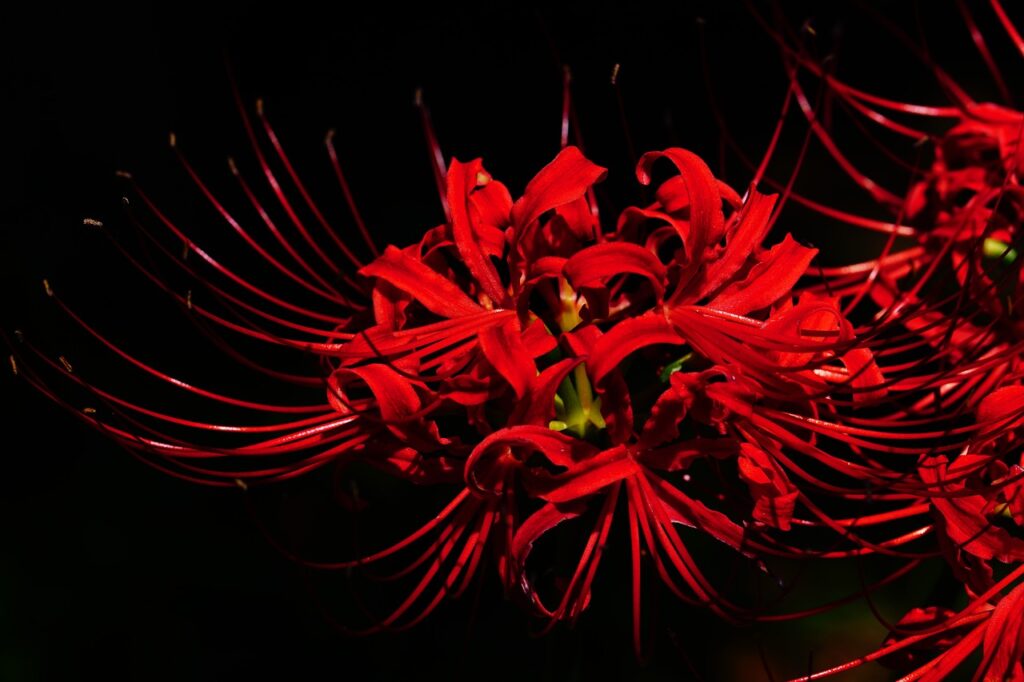
The superstition that bringing a red spider lily (Higanbana) into the house causes a fire is a belief that has been passed down in certain regions of Japan for generations. The red spider lily, with its vivid red flowers, blooms around the time of the autumnal equinox, especially near cemeteries and ancient burial mounds. Although the flower is beautiful, it is also toxic and has long been considered a symbol of both life and death.
This superstition is strongly connected to the fact that the places where the red spider lily blooms are often associated with death. Bringing these flowers, which grow near graves or sacred sites, into one’s home is believed to invite misfortune or death into the household, particularly in the form of a fire. The word “fire” can be phonetically associated with “housework” in Japanese, which reinforces the ominous connotation.
The red spider lily is also known by other names, such as “corpse flower” and “ghost flower,” further intensifying its association with bad luck. In Japanese culture, which places great respect on ancestors and the deceased, bringing red spider lilies into the home is seen as disturbing the spirits and has been particularly avoided.
In modern times, as scientific reasoning has become more common, fewer people believe in such superstitions. However, the red spider lily’s beauty, along with these superstitions and traditions, contributes to its mystical aura and reflects an aspect of Japanese culture.
If you forget to put away your Hina dolls, your marriage will be delayed.
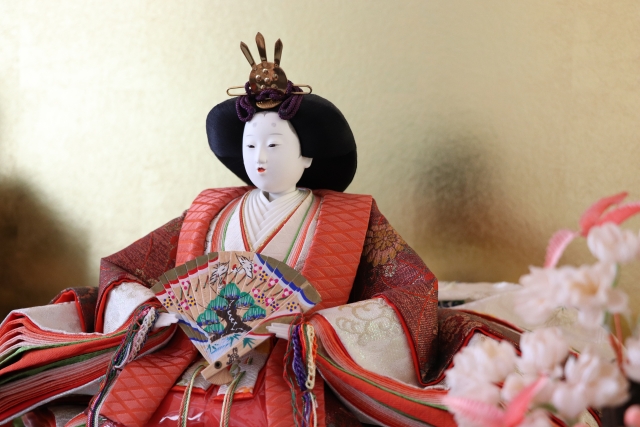
There is also a superstition that can send chills down a young girl’s spine: “If you forget to put away your Hina dolls, your marriage will be delayed.” Hina dolls symbolize the wedding of the Emperor and are believed to take on the misfortunes of the young girl they represent. After displaying them for the Hina Matsuri (Doll Festival), it is said that a girl who neglects to put them away will not grow into an ideal adult woman fit to be a wife, giving rise to the superstition that “forgetting to put away Hina dolls delays marriage.” This belief is also linked to the idea of bridal training, carrying the notion that a girl who cannot properly tidy up is not suitable for marriage.
Summary
How was it? In this article, we introduced some Japanese sayings that are believed to bring bad luck. You might have learned about superstitions that you already knew but discovered their background for the first time, or perhaps you came across some that you didn’t know the meaning of until now. It seems that Japanese people have long associated even the smallest aspects of daily life with death or misfortune, constantly keeping them in mind. If you found this interesting, be sure to check out superstitions that are believed to bring good luck as well!





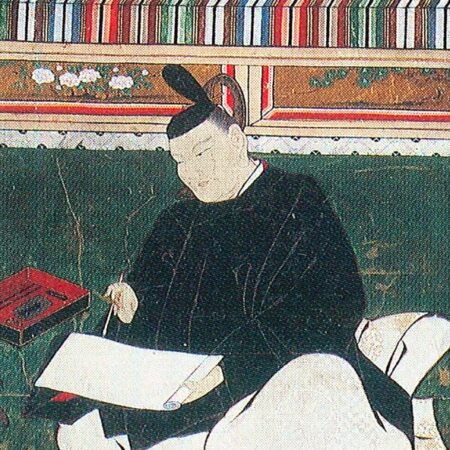

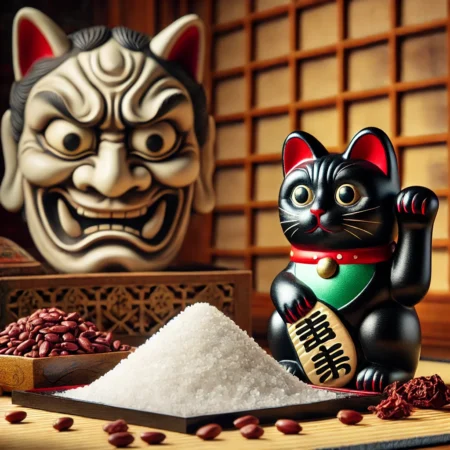
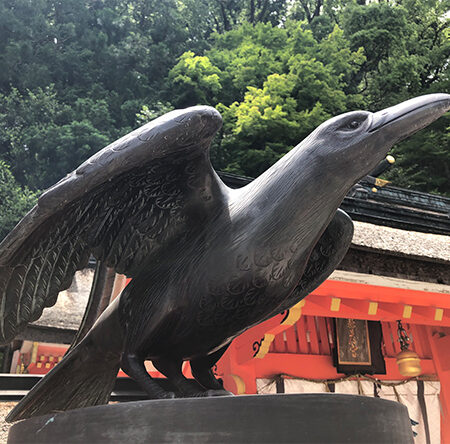

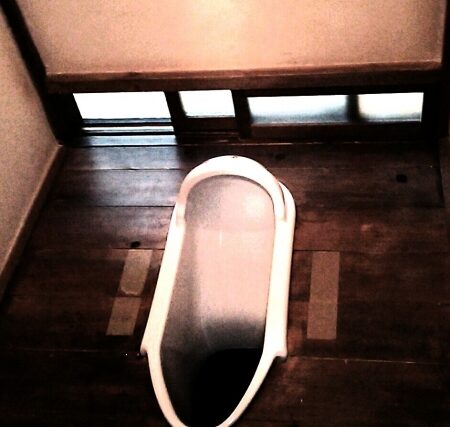
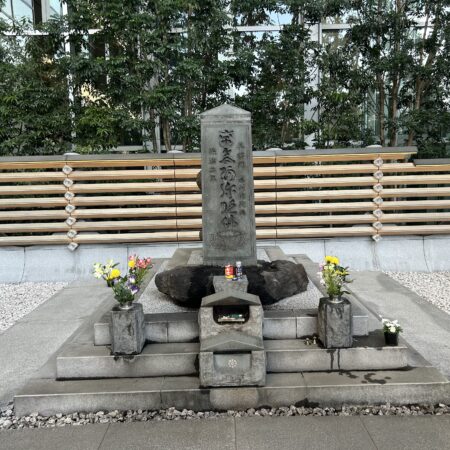


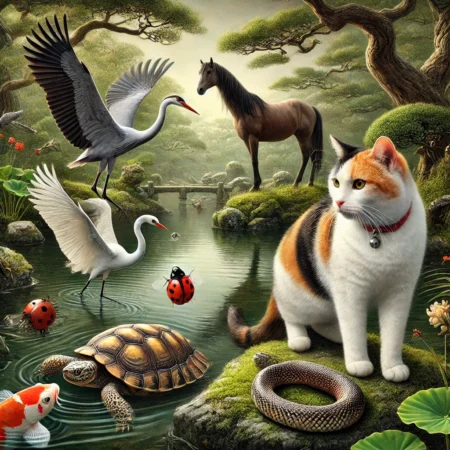
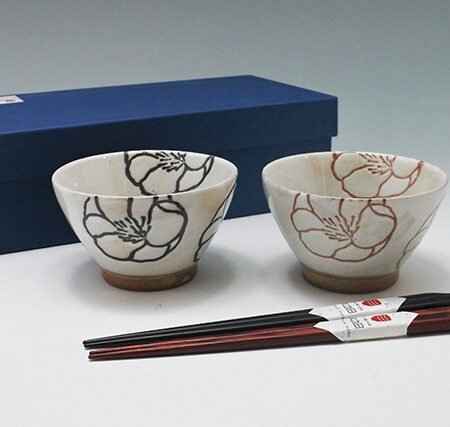
コメント